On the cold, crisp early morning of November 14, 2019, participants in the Unified Water Study (UWS) began to arrive at Earthplace in Westport, CT, ready to drop off their scientific equipment and close out the 2019 monitoring season. Sixty-two attendees representing twenty-two monitoring groups and key study partners gathered for the 2019 UWS Summit, the first such event since the inception of the UWS in 2017.
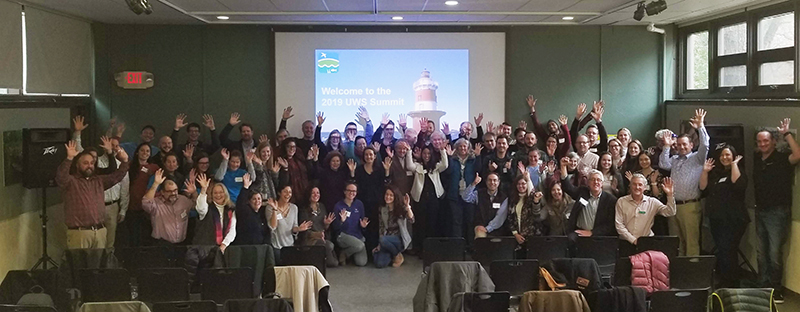
Launched by Save the Sound, the Unified Water Study: Long Island Sound Embayment Research (UWS) is a water quality monitoring protocol developed so groups around Long Island Sound can collect comparable data on the environmental health of our bays and harbors. Local monitoring groups receive support from Save the Sound staff, the study’s Science Advisors, and its funders. They are provided with monitoring equipment, training, Standard Operating Procedures, a custom study design for their monitoring locations, a template Quality Assurance Project Plan (QAPP), and other resources they need to successfully collect high quality monitoring data.
The day began with an entertaining “Meet the Embayments” ice-breaker presented by Elena Colón of Save the Sound. Because the groups are so spread out along the Sound coasts of Connecticut and New York, many have never met in person. While Elena guided people through the locations of each bay, harbor or cove (“embayments”) on a map, the associated monitoring group introduced themselves and shared a funny or unusual fact about the area they monitor.
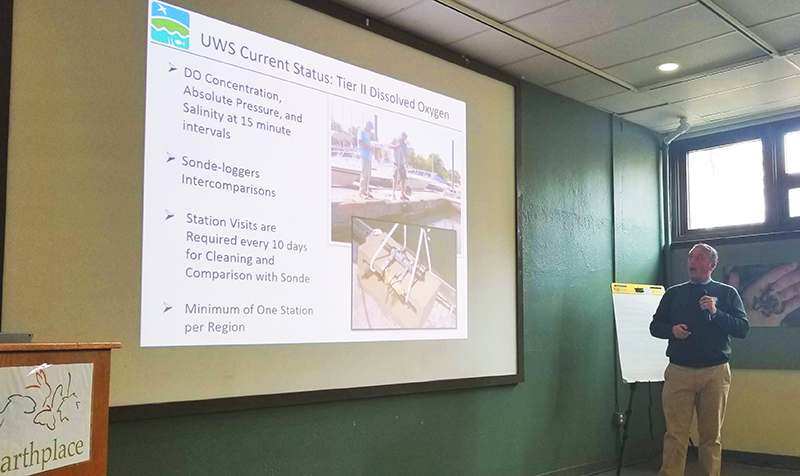
Unified Water Study Coordinator, Peter Linderoth of Save the Sound gave an update on the “State of the UWS.” Overall, the study is going extremely well with high praise for all of the participants’ dedication to detail and following the protocols set forth that make the UWS a valid, reliable monitoring program. Peter also outlined the plans for the UWS moving forward over the next few years which includes adding more groups each season.
After a short break, Peter was back at it along with fellow presenters Mark Tedesco, EPA LISS; Katie O’Brien-Clayton, CTDEEP; Sue Van Patten, NYSDEC; and Jason Krumholz, UWS Science Advisor to discuss the work of the Technical Advisory Committee (TAC). This effort gathers talented minds from the different stakeholder groups around the Sound to formulate a grading procedure for UWS data, so those data can be shared with the general public in a report card format starting in 2020.
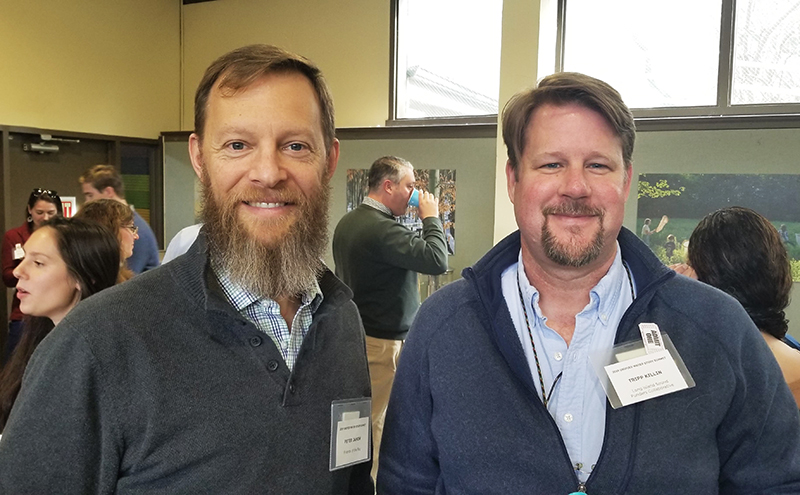
The afternoon began with a rousing call to action delivered by Curt Johnson, President of CFE/Save the Sound followed by an exploration into the possibilities for data visualization and website feature sets presented by Tracy Brown and Martin Hain. Tracy set the stage by providing an overview of our approach to data visualization on Sound Health Explorer (SHE), a website we developed to allow people to explore data related to local beach water quality. The audience was eager to share their thoughts and ideas on how best to share the UWS data with the public and what other datasets could enhance it. Martin wrapped things up with a walkthrough of some mock-ups of what SHE could look like after we create separate channels for different types of data, including UWS data. This brainstorming session will inform the design of that website expansion.
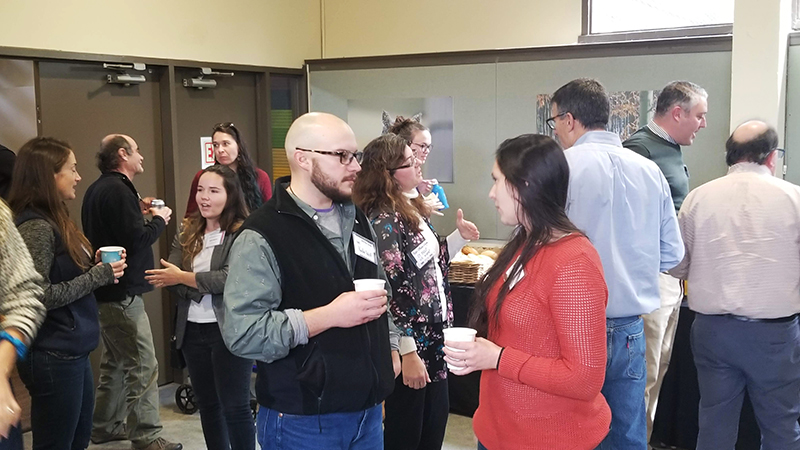
Next up, Dr. Sarah Crosby of Harbor Watch and UWS Science Advisor Dr. Jamie Vaudrey of UCONN talked with the group about their research study to assess all the data being collected in the Long Island Sound through community-based monitoring. Also discussed was the importance of the “Community of Practice” that is being formed by the groups that participate in the UWS.
The final presentation of the day was by John Dawes of Chesapeake Commons, in which he provided a fascinating view into different technologies that are available to groups who monitor water quality. John definitely inspired us to think about what’s next on the horizon with his demonstration of how AI could take what we create and serve it out to the ever growing users of AI interfaces like Google Home, Alexa and Siri.
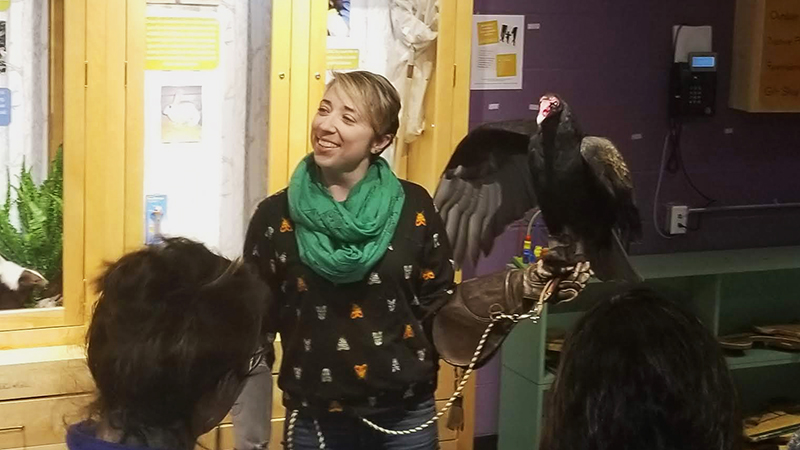
At the close, everyone gathered for a group photo and then headed down the hall for a networking reception where they were met by “E.T.”, a turkey vulture and his handler, Veronica Swain of Earthplace. Spirited discussions were had by all and new friends and allies were made along the way. We are so grateful to everyone who participates in the Unified Water Study and our thanks go out for all of the hard work you all do out in the field all season long!
PRESENTATIONS:
Elena Colón’s Presentation (PPT)
Peter Linderoth’s Presentation (PPT)
Katie O’Brien-Clayton’s Presentation (PPT)
